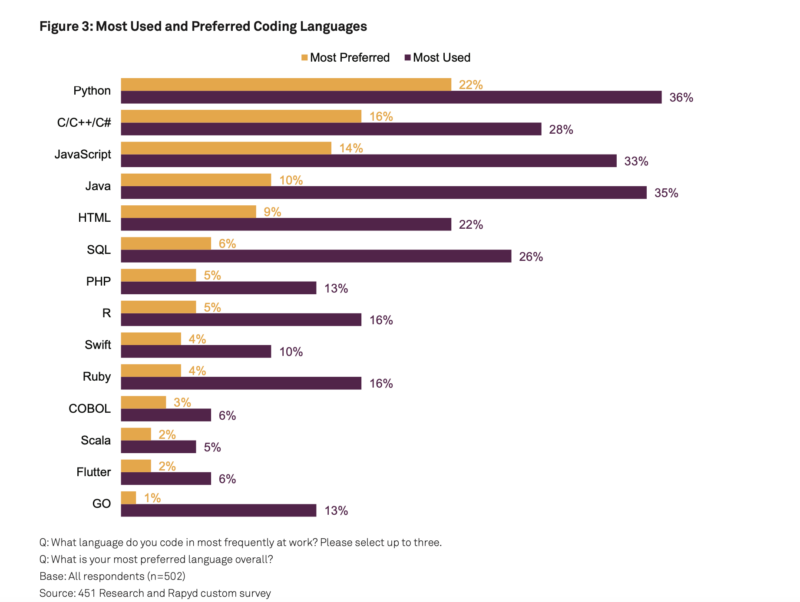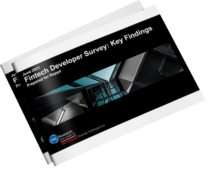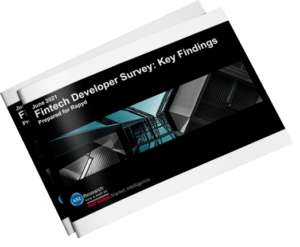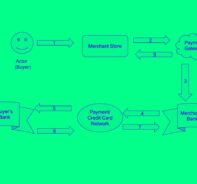- When building apps, fintech developers prefer Python and C, want improved documentation, and rely on top cloud services.
- Best Practices from the State of the Fintech Developer Report
- Developers Prefer Python and C
- Read the Full Report
- Better Documentation Means Better Results
- Some Cloud Services Are Becoming Standard
- Open-Source Projects Stimulate Community Connection
- Learn about career outlooks, projects and tools, the industry state and more in our full State of the Global Fintech Developer study.
- About the Study
When building apps, fintech developers prefer Python and C, want improved documentation, and rely on top cloud services.
What’s one of the most prized resources for fintech devs? The landmark study revealed that 56% of respondents reported solid documentation was one of their most important resources.
Devs also rely on open-source resources, and almost all (95%) of developers have been involved with these repositories. These are just some of the findings into best practices revealed by S & P Global Market Intelligence’s recent study in conjunction with Rapyd.
Best Practices from the State of the Fintech Developer Report
Developers Prefer Python and C
Generally, fintech developers prefer Python and C. These are also some of the most commonly used coding languages in the US, UK, and Asia. However, there is a gap between the most used languages and the most preferred languages. Despite fintech developers choosing C as their second choice language, it is less commonly used relative to Java.

Among these, Python is the preferred coding language, especially for those with 10 or more years of coding experience. Secondary choices were C/C++/C#, with the remainder including SQL, HTML, and R. Many developers prefer Python for its ability to handle challenging integration issues inherent to many eCommerce applications.
Better Documentation Means Better Results
Developers want better documentation. The study found that one of the most highly prioritized vendor-provided resources is detailed project documentation/use case guides, with 56% of respondents saying this was one of their most prized resources. Companies that can offer improved documentation/use case guides can expect better results, higher engagement, and greater loyalty from developers.
Some Cloud Services Are Becoming Standard
Developers need top-performing cloud service providers such as Amazon Web Services (AWS) and Azure.
According to our study, 67% of fintech developers work with AWS. That’s compared to 56% of developers who work with Azure. Both of these applications are friendly environments for hosting fintech developer tools and maintaining data integrity and data recovery. Less popular cloud platforms included Google Cloud Platform (53%), IBM (46%), Oracle Cloud (40%), with only 5% reporting other and 2% none of the above.
Open-Source Projects Stimulate Community Connection
Related to tools, most developers are involved in open-source projects. In our study, 95% of respondents said they are currently, or have previously been, involved in open-source projects. Of those, 83% have contributed to public repositories on Github in the last 12 months.
This kind of open-source project involvement helps support a stronger fintech developer community, share critical knowledge of complex topics, and help developers gain visibility into new areas and best practices.
Learn about career outlooks, projects and tools, the industry state and more in our full State of the Global Fintech Developer study.
About the Study
Rapyd’s Black & White paper with S & P Global Market Intelligence’s 451 Research is a study based on primary research survey data that assesses the market dynamics of a key enterprise technology segment through the lens of the “on the ground” experience and opinions of real practitioners — what they are doing and why they are doing it.
The findings presented in this report draw on a custom global survey of 502 fintech developers. The survey was fielded in Q2 2021 and included respondents based in the US, UK, Singapore, New Zealand, India, Hong Kong and Australia.
Subscribe Via Email
Thank You!
You’ve Been Subscribed.





